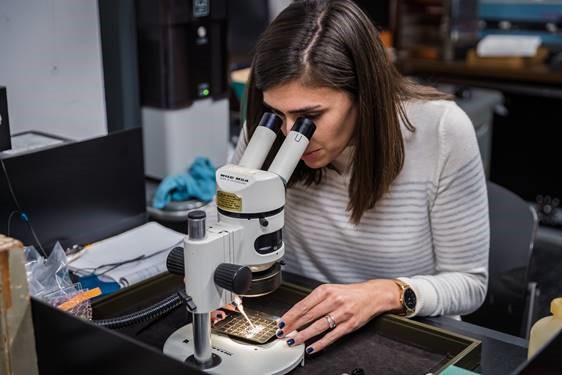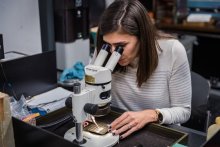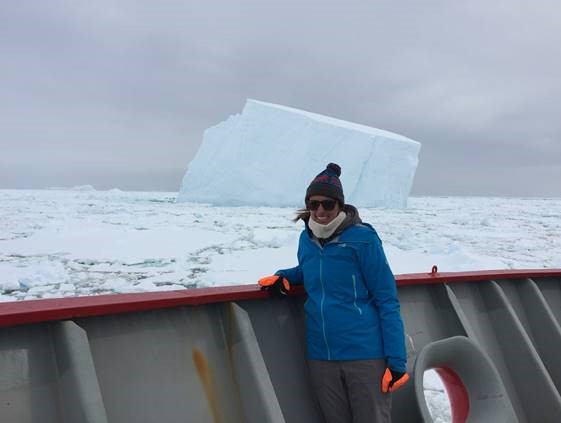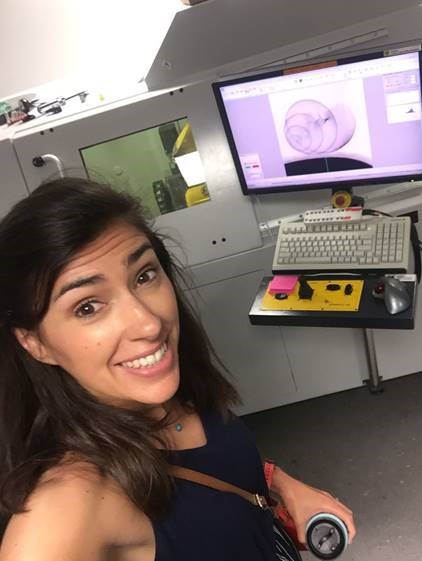


My academic career didn’t exactly start with a bang…I’m told I fell asleep on my first day at school. I don’t remember what I was dreaming about, but I doubt it was becoming a plankton research scientist in Philadelphia.
Now I spend my days studying how a group of tiny swimming snails, called pteropods, are being affected by climate change. Pteropods are key components of the marine food chain, especially in polar regions, and understanding their response to changing ocean conditions has implications for the stability of the marine ecosystem as a whole. If you have ever taken a Biology class with my mum, Mrs Oakes, you might not be surprised at where I ended up, but the journey has felt much more circuitous.
My love for earth sciences was sparked during GCSE geography. We were studying glacial features and our particularly enthusiastic teacher was stomping around the classroom dropping rocks on the desk to try and demonstrate how powerful glaciers were. We looked at pictures and drew diagrams but it wasn’t until later that year, on a field trip to the Lake District, that it really hit me. Standing at the base of a massive U-shaped valley, our teachers asked us how such a tiny stream could have calved that massive valley. My brain had nothing, it wasn’t possible. The only way to create that valley was with a glacier, and the last time one had been there was over ten thousand years ago. I was confused, amazed, and instantly hooked!

Working with my A Level teachers (Biology, Chemistry, Geography, History), I found a course where I could study how landscapes and life had changed through time and headed to the University of Edinburgh to study Physical Geography and Geology. Almost impossibly, the Grange had created an environment where it was good to be geeky. I took this mindset with me to lectures and geeked-out as world-renowned professors taught me how the earth worked. The Grange taught me to be myself, to go into a new environment knowing I was worth more than how I looked, but that I’d be valued for my hard work and curiosity.
The curiosity that was sparked growing up with a biology teacher for a mum, and was nurtured at the Grange, is what drove me to move to Canada to pursue a masters degree in Earth Sciences, and then to America for my PhD in Geosciences. The Grange gave me the confidence to believe in myself, and to try new things, even when I thought I might fail. The resilience I gained from tramping through bogs after taking a wrong turn on a Duke of Edinburgh expedition, or nervously playing my violin at a concert, helped me to deal with setbacks I’ve faced as a scientist.
Experiments don’t always go the way we expect them to. In fact, the most important science happens when the results differ from what we expect, but those challenges can be exactly that, challenging. The thing that kept me going was the fascination with the questions I was asking, and the chance to work with some truly brilliant people. So chase those dreams, study the subjects that amaze you and challenge your brain. There are going to be setbacks along the way but taking that rainy wrong turn on your Duke of Edinburgh expedition may have just been the perfect preparation for that.
Rosie Oakes

